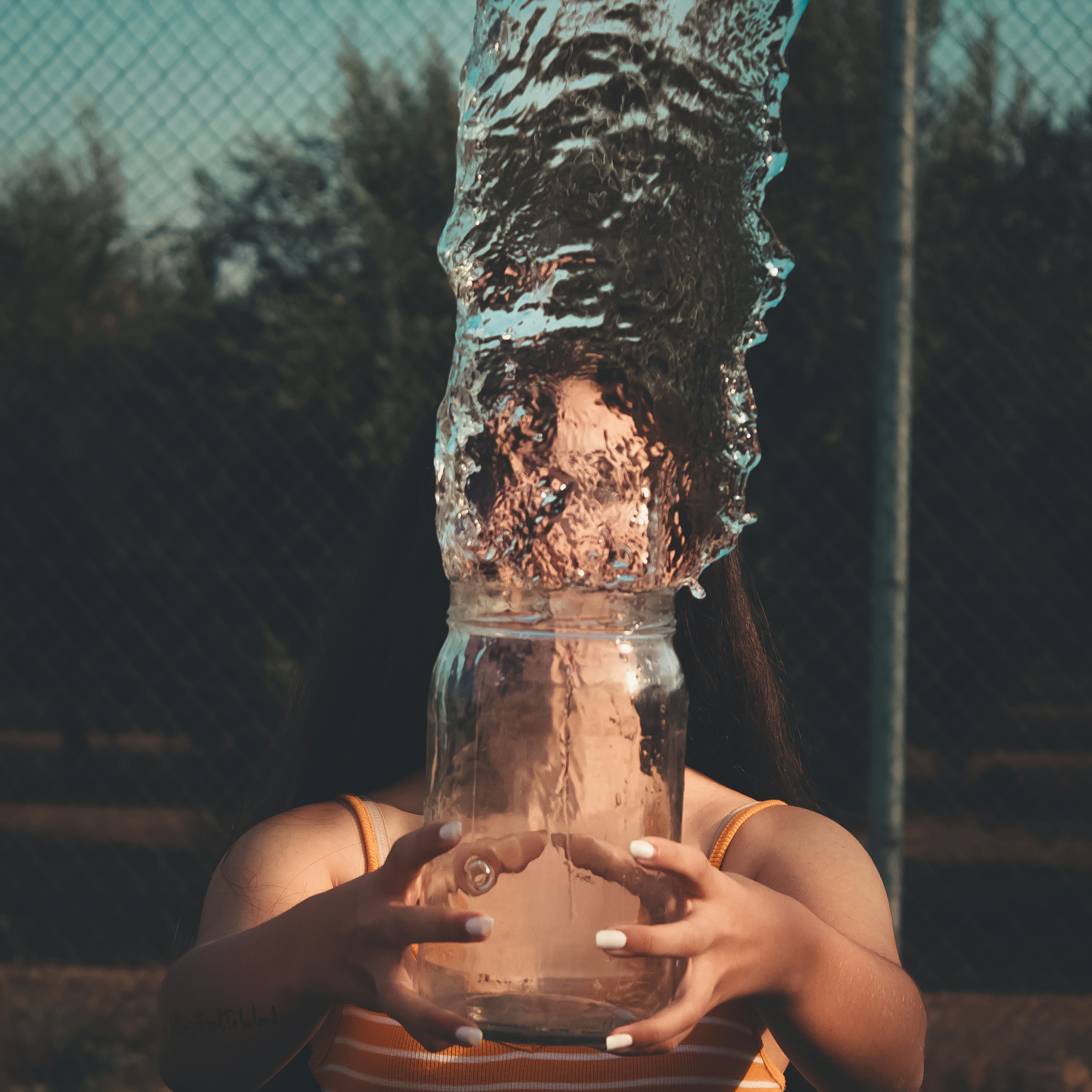
Hot, Bothered & Dehydrated

Sun’s out, sweat’s out—and if you’re in perimenopause or beyond, that sticky, sluggish, can’t-quite-cool-down feeling isn’t just your imagination. Whether you’re brisk walking, doing your usual gym thing, or pushing heavier weights, the summer heat has a sneaky way of turning a decent session into a dehydrated disaster.
Let’s talk about hydration—the unsexy but essential secret to staying cool, calm, and strong this summer. Spoiler: It’s not just about glugging water like it’s a hobby.
🔥 Why the Heat Hits Us Differently
Women regulate heat in a slightly different way to men (surprise surprise), and it becomes even more noticeable once you throw in hormones, age, and that slow trickle of oestrogen making a dramatic exit stage left.
Here’s the gist:
-
Our bodies open up blood vessels to try and cool us down before we even break a sweat.
-
When we do sweat, it’s usually less than men—even if we’re doing the same workout.
-
We lose water faster when we’re a bit dehydrated, and we heat up more quickly too. Brilliant.
Add in menstrual cycles, peri- or post-menopausal hormone shifts, and suddenly that “meh” feeling during a summer workout makes perfect sense.
💦 More Water Isn’t Always the Answer
I know, I know. You’ve been told to stay hydrated, so you chug a bottle (or three) and wonder why you still feel lightheaded, bloated, or like you’ve swallowed a paddling pool.
Here’s the thing: hydration isn’t just about water. You need sodium too—especially if you’re out there sweating like a woman holding it together at a family BBQ.
Drinking only water, especially in large amounts, can dilute your sodium levels. This can actually make you feel worse. Think nausea, brain fog, and in extreme cases, something called Exercise-Associated Hyponatremia—basically, water overload. Not a vibe.
👙 So… What Should I Be Drinking?
The perfect drink for you depends on a few things—how long you’re training, the weather, your own body size and fitness level—but here’s a cheat sheet to get you started:
✅ In the heat (over 25°C / 77°F), aim for around 10ml of fluid per kilo of bodyweight per hour.
That’s about 650ml/hour for a 64kg (140lb) woman.
✅ Choose drinks with some sodium and a bit of sugar (glucose/sucrose).
This helps your body absorb the fluid instead of letting it sit in your gut like a warm water balloon.
✅ Avoid overly sugary drinks, fizzy sodas, or anything with “mystery” carb blends—they’re more likely to cause bloat, cramps, or that mid-run toilet panic.
✅ Don't overdo it. Even if you’re thirsty, downing too much can make things worse. No one wants to be the bloated sweaty lady power-walking home.
⚖️ How to Tell If You’re Getting It Right
-
You’re not constantly running to the loo (or barely going at all).
-
You feel reasonably alert and not like a dehydrated raisin.
-
You’re sweating, but not stopping mid-workout because you feel faint.
-
Your gut isn’t staging a rebellion.
🧠 One Last Thing on Gut Health…
When you exercise—especially in the heat—your body sends blood away from your gut to help cool you down. So if you’re drinking or eating things that your stomach doesn’t love, you’re likely to get bloated, crampy, or gassy. Yay.
That’s why choosing the right hydration drink matters. Keep it simple. Hypotonic drinks (those with less sugar than your blood—science!) are easiest to absorb. Save the gels and “rocket fuel” for race day if you’re an endurance athlete. Everyone else: low sugar, some salt, job done.
🏁 The Planet Pause Hydration Rules
Want to train well and feel human doing it? Try this:
-
Drink to thirst if:
-
You’re already hydrated
-
You’re acclimatised to the heat
-
You’re just doing a moderate session
-
-
Drink on a schedule if:
-
You’re perimenopausal or postmenopausal
-
You’re doing two-a-day workouts
-
You’re training in hot weather or at altitude
-
You’ve had heat-related issues before
-
-
Never exceed ~880ml/hour (unless you really know your needs and have tested it).
☀️ In Summary…
Perimenopausal bodies are amazing, complex, and sometimes downright dramatic in the heat. But staying hydrated—with the right fluid—is one of the simplest ways to keep feeling strong, focused, and ready to face whatever summer (or your workout) throws at you.
So yes, drink up. But make it smart.
Your body will thank you—and so will your shorts.

